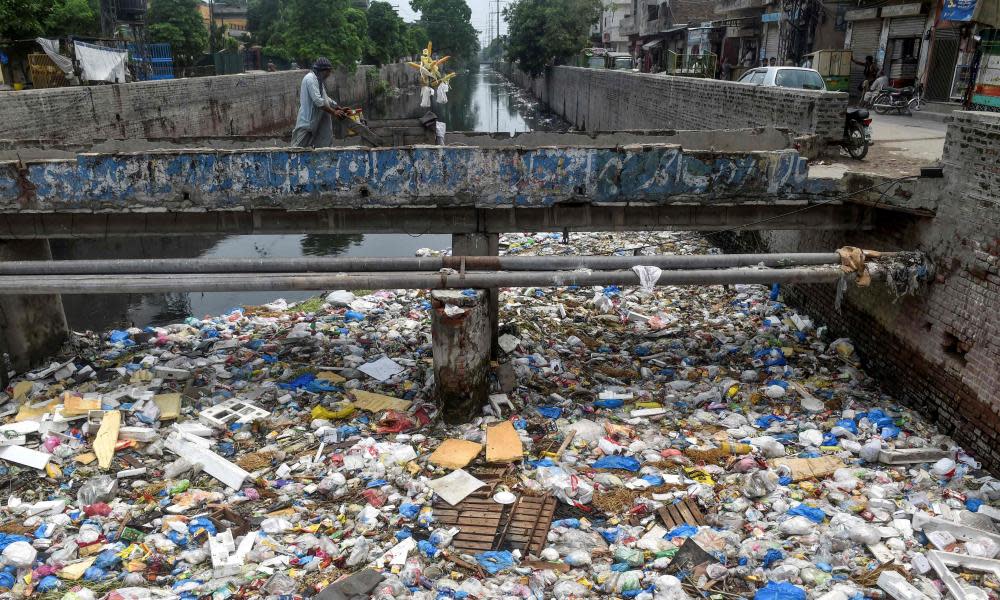Pakistan expands ban on plastic bags as inspectors are caught in shop spat

Punjab has become the latest region in Pakistan to ban plastic bags, as the country battles to reduce single-use plastics that are damaging the environment.
So far there is no date for implementation in Pakistan’s most populous state. The south-eastern province of Sindh has announced it will ban polythene bags from October, and last week a ban took effect in Islamabad.
Residents in the capital city will be fined $70 (£57) if they are caught using a polyethylene bag – nearly a month’s wages for a labourer. Plastic manufacturers and shopkeepers will also face fines.
One shopkeeper in Islamabad was fined 200,000 PKR (£1,030) for using plastic bags, following an inspection by Farzana Altaf, director general of the Pakistan Environmental Protection Agency.
Related: Rivers of waste: Pakistan's recyclers go out on patrol – in pictures
Altaf and her staff were bustled out of the Savour Foods takeaway restaurant in the capital in an incident tweeted by Zartaj Gul, the minister of state for climate change. The manager of another store was fined 50,000 PKR.
After Punjab’s chief minister affirmed the ban would happen, Gul tweeted that she was “delighted to announce that CM Punjab, @UsmanAKBuzdar has thankfully given assent to my request to ban plastic shopping bags in Punjab too!”
For more than a decade, Pakistan’s provinces have imposed bans on single-use plastic bags but local governments have failed to implement the policy, and people have no cheap alternatives.
But Malik Amin Aslam, adviser to the prime minister on climate change, told the Guardian: “There is a political commitment to rid Pakistan of plastic. Its use has a huge health and economic cost. And we have taken this step to make a difference and we have put heavy penalties [on those] who don’t respect the ban.”
Aslam said the government would support traders seeking alternatives. “At the moment, we are introducing paper bags,” he said, adding that the cabinet had declared banning plastics “a national goal”.
Hassaan Sipra, a scientific officer at the Centre for Climate Research and Development at Comsats University in Islamabad, was sceptical that change would happen. “Implementation of laws has always been an issue in Pakistan. The current government has shown a serious attitude to make this ban successful but they have to implement it and monitor too,” he said.
“The government has to make a difference this time because failure has a devastating cost to the environment,” said Afia Salam, an environmental journalist. “Of course, you will not see change overnight and the effectiveness will depend on the implementing agencies.”
In Islamabad, it’s still early days. At the F-6 supermarket, Kamran Ahmed wasn’t offered a paper bag when he bought vegetables. Carrying them in his hands to his car, he said: “The government has banned plastic bags but many shops are not offering alternatives in place of plastic bags. This is so frustrating.”

 Yahoo News
Yahoo News 
